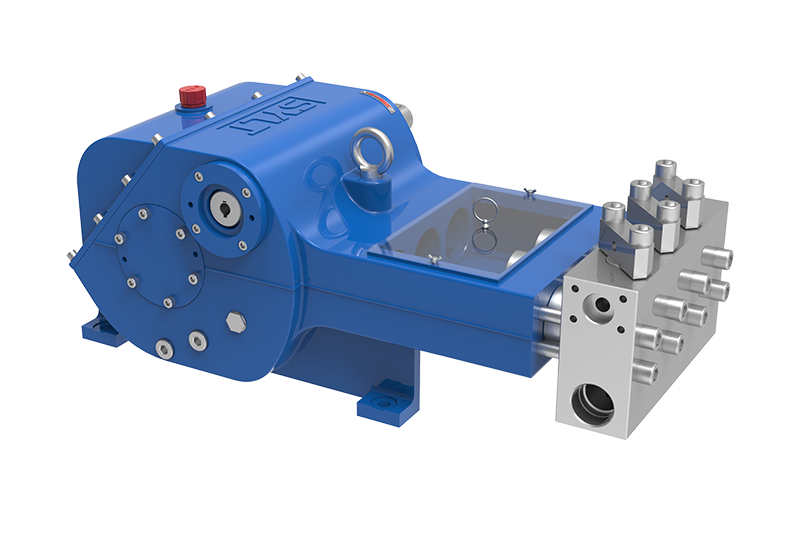Top Features to Look for in the Best Stainless Steel High Pressure Pumps
When it comes to industrial applications, the choice of the right pump is crucial. **Stainless steel high pressure pumps** are known for their reliability and durability, making them a popular option in a variety of industries. Understanding what to look for in these pumps can significantly impact performance, maintenance, and overall efficiency. This article delves deep into the essential features to consider when selecting the best stainless steel high pressure pumps for your needs.
Table of Contents
- 1. Understanding Stainless Steel High Pressure Pumps
- 2. Key Features to Consider in High Pressure Pumps
- 2.1. Material Quality and Corrosion Resistance
- 2.2. Flow Rate and Pressure Capacity
- 2.3. Energy Efficiency
- 2.4. Maintenance Requirements
- 2.5. Noise Levels
- 3. Types of Stainless Steel High Pressure Pumps
- 4. Applications of High Pressure Pumps
- 5. Common Brands and Their Expertise
- 6. Frequently Asked Questions
- 7. Conclusion
1. Understanding Stainless Steel High Pressure Pumps
Stainless steel high pressure pumps are designed to handle high-pressure applications where durability and performance are critical. These pumps are used in various sectors, including food processing, chemical manufacturing, and water treatment, due to their resistance to corrosion and ability to maintain structural integrity under pressure. **Selecting the right pump** can enhance efficiency, reduce operational costs, and prolong the lifespan of your equipment.
2. Key Features to Consider in High Pressure Pumps
When evaluating high pressure pumps, several **key features** should be prioritized to ensure optimal performance and reliability. Below, we explore these features in detail.
2.1. Material Quality and Corrosion Resistance
The **material quality** of a pump directly influences its longevity and efficiency. **Stainless steel** is preferred due to its excellent corrosion resistance, especially in harsh environments. Look for pumps made from **304 or 316 stainless steel**, as these grades provide superior resistance to rust and chemical exposure. Ensuring that the pump’s components, including seals and gaskets, are also resistant to corrosion is essential for preventing leaks and maintaining pressure.
2.2. Flow Rate and Pressure Capacity
Understanding the required **flow rate** and **pressure capacity** is vital in choosing a high pressure pump. The flow rate, measured in gallons per minute (GPM) or liters per minute (LPM), indicates how much fluid the pump can move. Additionally, the pressure capacity, often measured in pounds per square inch (PSI), reveals the maximum pressure at which the pump can operate effectively. An ideal pump should meet or exceed the specific requirements of your application to ensure optimal performance.
2.3. Energy Efficiency
In today’s eco-conscious environment, **energy efficiency** plays a crucial role in pump selection. High pressure pumps that feature **energy-saving technologies**, such as variable frequency drives (VFDs), can adjust their speed based on demand, reducing energy consumption. Investing in energy-efficient pumps not only lowers operational costs but also contributes to a more sustainable industrial practice.
2.4. Maintenance Requirements
Routine maintenance is essential for the longevity and efficiency of high pressure pumps. Look for pumps designed with **ease of maintenance** in mind. Features such as removable covers or **self-priming capabilities** can simplify maintenance tasks. Additionally, consider the availability of replacement parts and the manufacturer's support for service and maintenance.
2.5. Noise Levels
Noise levels can be a significant concern in industrial settings. Choosing a pump that operates at **lower decibel levels** can enhance workplace comfort and comply with noise regulations. Look for features that minimize vibration and sound, such as **rubber mounts** or noise-dampening designs.
3. Types of Stainless Steel High Pressure Pumps
Understanding the different types of stainless steel high pressure pumps can help you select the right one for your application. The primary types include:
- Centrifugal Pumps: These are ideal for high flow applications and are known for their efficiency.
- Positive Displacement Pumps: Best suited for high viscosity fluids, offering consistent flow regardless of pressure changes.
- Diaphragm Pumps: Excellent for handling corrosive fluids, these pumps utilize a flexible diaphragm to create pressure.
4. Applications of High Pressure Pumps
Stainless steel high pressure pumps find applications in a myriad of industries, including:
- Food and Beverage: Used in processing, conveying, and packaging.
- Chemical Processing: Essential for transporting corrosive chemicals safely.
- Water Treatment: Utilized for filtration and distribution of potable water.
- Pharmaceuticals: Critical for maintaining hygiene and efficiency in drug production.
5. Common Brands and Their Expertise
Several renowned brands manufacture high-quality stainless steel high pressure pumps, each with unique strengths:
- Grundfos: Known for innovation and energy-efficient designs.
- Goulds: Offers robust solutions for various industrial applications.
- Wilo: Specializes in efficient pump systems for water management.
- Flowserve: A leader in engineered pump solutions with a global presence.
6. Frequently Asked Questions
What is the maximum pressure a stainless steel high pressure pump can handle?
The maximum pressure varies by model but can range from several hundred to several thousand PSI. Always check the specifications from the manufacturer.
How do I maintain a stainless steel high pressure pump?
Routine inspections, cleaning, and lubrication are key to maintaining your pump's efficiency. Refer to the manufacturer's guidelines for specific maintenance schedules.
Are stainless steel high pressure pumps suitable for corrosive environments?
Yes, stainless steel pumps are designed to withstand corrosive environments, particularly those made from higher-grade stainless steel like 316.
What applications benefit from using high pressure pumps?
High pressure pumps are commonly used in applications involving fluid transfer under high pressure, such as chemical processing, food and beverage production, and water treatment.
How can I enhance the energy efficiency of my pump?
Consider using variable frequency drives (VFDs) to adjust the pump speed based on the demands of your application, reducing unnecessary energy consumption.
Conclusion
Choosing the best stainless steel high pressure pump involves careful consideration of several essential features, including material quality, flow rate, energy efficiency, and maintenance requirements. With a better understanding of these factors, you can make an informed decision that not only meets your operational needs but also enhances productivity and efficiency in your industrial applications. Invest wisely in high pressure pumps to ensure their long-term reliability and performance.
The 17th China International Powder Metallurgy and Hard Alloy Exhibition
The 2025 17th China International Powder Metallurgy and Hard Alloy Exhibition from March 10-12, 2025, at the Shanghai World Expo Exhibition and Convention Center, Hall H1, B425. We welcome guests to visit.
"Private custom" product design, reliable and durable finished products
"Private custom" like product design, reliable and durable finished products, professional and timely after-sales service. It is the "three basic concepts" that the company adheres to from the beginning until today ".
Experienced market research team, independent product development concept
We have experienced mature market research team, independent product research and development concept, professional design and manufacturing technology so that the company's products can be adjusted according to the specific requirements of customers timely design







